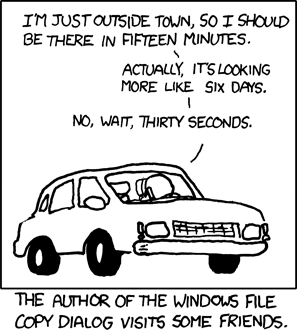Hi everyone!
So this is quite strange and I'm not sure this was ever discussed here. Kind of new to FreeBSD so please take that into consideration.
So each time I plug my power cord it takes an abnormal amount of time to charge the battery. Like an hour per 10% charge, which in my honest opinion it's a lot of time! This doesn't happen if the computer is turned off, so it's not a battery issue. Also, if I try to boot into another OS (for example I tried to use Tails OS) it charges with no problem (I'm talking about less than 2h)! Ever weirder is that after I reboot from Tails OS without unplugging the power cable, after I login to FreeBSD the remaining time for charging is the same as Tails, so roughly 2h or less to fully charge!!! So I'm obviously missing something here.
Can anyone point me to the right direction? Is this some driver related thing?
Really appreciate your help!
Many thanks,
Juan.
So this is quite strange and I'm not sure this was ever discussed here. Kind of new to FreeBSD so please take that into consideration.
So each time I plug my power cord it takes an abnormal amount of time to charge the battery. Like an hour per 10% charge, which in my honest opinion it's a lot of time! This doesn't happen if the computer is turned off, so it's not a battery issue. Also, if I try to boot into another OS (for example I tried to use Tails OS) it charges with no problem (I'm talking about less than 2h)! Ever weirder is that after I reboot from Tails OS without unplugging the power cable, after I login to FreeBSD the remaining time for charging is the same as Tails, so roughly 2h or less to fully charge!!! So I'm obviously missing something here.
Can anyone point me to the right direction? Is this some driver related thing?
Really appreciate your help!
Many thanks,
Juan.

